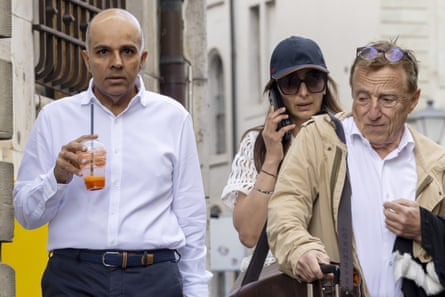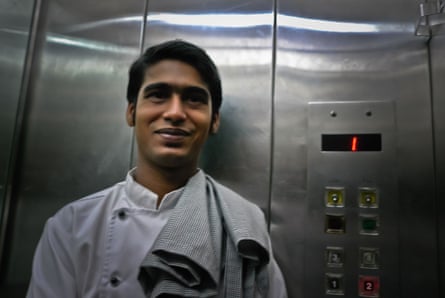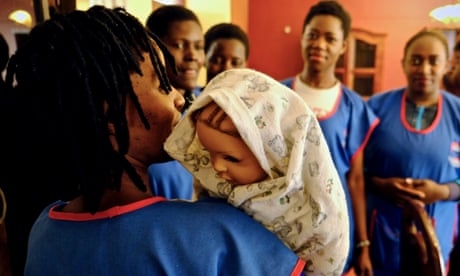Although some domestic staff in the subcontinent are treated well, for most it is a relentlessly harsh and thankless existence writes Amrit Dhillon in The Guardian
How the Hindujas, Britain’s richest family, treated their domestic staff at their Swiss mansion made it to the courts and on to the front pages last month. But in India it failed to elicit even a flicker of attention.
Plenty of Indians treat their cooks, maids, drivers and nannies very well. They offer a decent wage, time off, speak to them politely, and appreciate their hard work. They educate the staff’s children in good schools and help to pay for family weddings. When staff grow too old to work, they are bid adieu with a lump sum and a monthly pension for the remainder of their lives as a token of gratitude. During sickness, they are taken to good doctors for treatment without having to pay.

Some Indians are very generous. When one employer heard that a young woman who had worked for her briefly had been diagnosed with HIV – which she had passed on to her son in pregnancy – the ex-employer began paying a generous sum into her bank account every month to help the young mother manage.
The norm across India, though, is less benign. For most of the maids, cooks, drivers and ayahs (nannies) who work in homes, the following rules apply:
Your work is never done
All the chores may have been finished but no break or relaxation is allowed. It affronts the master’s sense of decency. More work is created. “Come and massage my legs.” “Polish the brass ornaments.” “Oil granny’s hair.” In Aravind Adiga’s novel The White Tiger, when the couple’s cook is not available, they order the driver to cook for them. If a family has no plans to go out, the driver is kept on call, even though he is baking in the heat and could easily be sent home.

Drivers get every Sunday off but maids are lucky to get two Sundays off in a month and certainly no birthdays. This has prompted some maids to claim they are Hindus married to a Christian man because they are then entitled to more public holidays and festivals.
No space is your own
The maid sleeps on the landing or passage or any available corner. If there are “servant’s quarters” in the home, they are kennels on the rooftop. It is imperative that the rooms have a low roof and no window. When builders erect opulent apartments fitted with Italian marble and Belgian chandeliers, they designate a cell for the help, which can contain an inside latrine – yes, inside – so the maid has to use the toilet in the same tiny space. She must speak to her employer standing up, never sitting on a chair, and eat her food sitting on the floor or mat. Even if the family is out, the sofas and chairs are out of bounds.
Use your own plates
The kitchen is a segregated zone. When the maid eats or has a drink of water, it’s off a separate plate and in a separate glass from those used by the family. She is “clean” enough to cook the family’s meal but not clean enough to use the same crockery, even if it’s only cheap melamine.
Do not fall sick
When a maid becomes ill, the family balk at paying for treatment. You’ve got tuberculosis? Tough luck. We’re not paying for tests or medicines for the stipulated six months. She is sent packing on the first available train back to her village.

No one wants a maid who is incapable of working and incurs expenses. This is the same maid or ayah who will have spent years getting up at night to nurse and comfort the family’s sick children.
The fridge is policed
She may spend all day cooking lovely meals but any expensive treats in the fridge are out of bounds. India is the only country in the world where fridge manufacturers add a lock; even the multinationals have succumbed to this demand. When the family leaves the house, the fridge is locked. In many cases, the mistress of the house actually doles out the food on to the maid’s plate to ensure there is no gluttony. Almonds and other nuts are locked away in a cupboard.
Avoid going out for a meal
Once in a while, a grotesque scene plays out in a restaurant or five-star hotel. The family is dining out and has brought the ayah with them to tend to the toddler so that they can enjoy their evening. The family will not tolerate her sitting with them. She is forced to stand by the table, looking miserable and self-conscious in an environment where she feels hideously out of place. Not only is she the only one standing in the restaurant, she is the only one not eating. The family eat and drink, pay the bill and leave without ordering anything for her.
Use the right lifts
In many housing complexes, the part-time (as opposed to live-in) maid has to use a separate lift, presumably because the residents may be offended by the smells wafting from her in the confined space.

Yet it occurs to no one that perhaps the housing conditions of those who work for the residents should be clean and hygienic instead of the fetid shanties near the complex where they are forced to live, sharing a toilet with 50 or more other families and with no running water.
Do not expect anything
People living in gated communities will never provide a shelter or install a fan for the press-wallah who irons their clothes outside in the scorching heat, or give him a plastic chair where he can sit to rest in between bouts of work. When this was rashly raised by some do-gooding, bleeding-heart wuss in one south Delhi neighbourhood, the residents’ welfare association erupted in outrage. They argued that all the drivers and security guards in the area would congregate at the chair, and the spot would become a “den of iniquity”, with people playing cards and gambling, while chatting with the press-wallah. Some associations ban drivers from parks and sitting on the benches. Memsahib thinks their presence lowers the tone.
